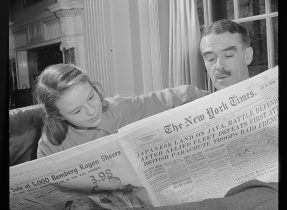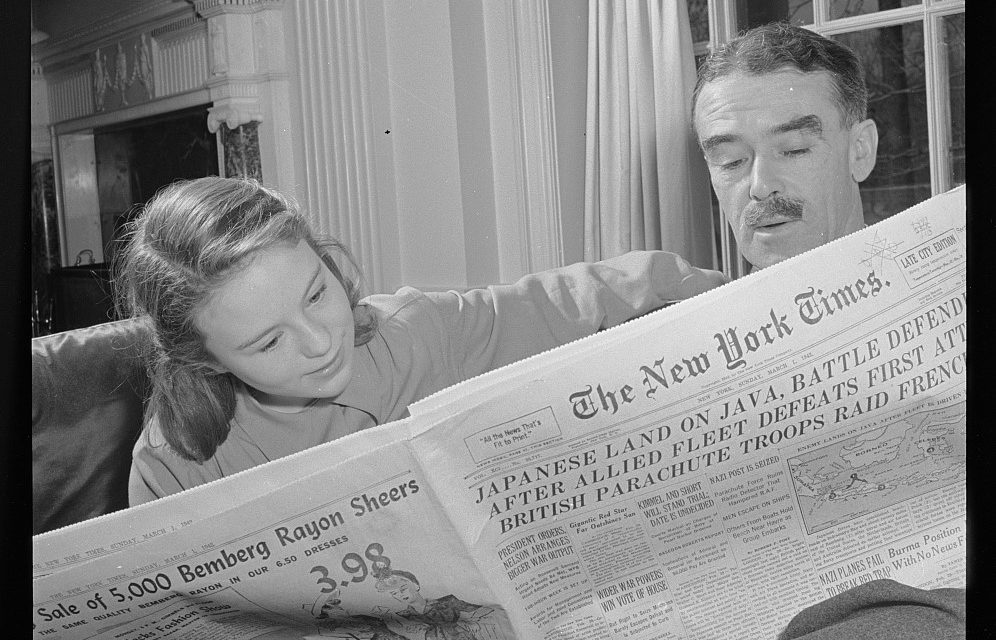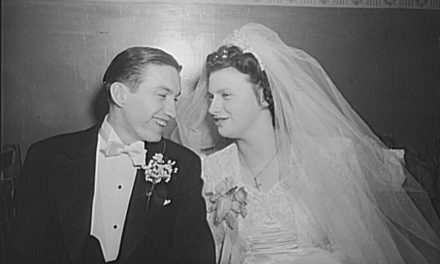President Franklin Roosevelt will recognize Oct. 1-8 as the third annual National Newspaper Week with the theme “American newspapers go all-out for war.” This comes after thousands of writers and editors left their jobs to support the war effort, and those who remained on the job helped to promote the sale of war bonds.
According to an announcement this week in Editor & Publisher, 21,000 newspaper and press association employees have left their jobs to engage in work directly connected to the war. It is estimated that the army has taken three quarters of the male editors and publishers in the newspaper industry.
Secretary of State Cordell Hull has emphasized the role that women play in the efforts of the free press in addition to the men. Hull said he has been “deeply impressed by the high sense of obligation with which newspaper men and women, almost without exception, have taken their places in the firing line of the war.” These efforts include checking enemy propaganda, intended to demoralize Americans.
The newspaper industry has also assisted in the effort to finance the war. The U.S. Treasury Department has estimated that the country has accumulated $65 million in war savings bonds thanks to free advertising space provided in 10,000 daily, weekly, and sectarian newspapers. Additionally, newsboys have sold $50 million in war stamps.
Many state leaders are expressing their support of National Newspaper Week, including Gov. Herbert Lehman of New York. Lehman highlighted the press’ role in protecting patriotic freedoms. “In the midst of the conflict the newspapers of the country have decided to dedicate a week nationally to the explanation of their functions in the preservation of organized democracy,” Lehman said in a proclamation. “They desire to tell their readers what they are trying to do and to ask for cooperation in the effort.”
Lehman added, “It is wise that they [newspapers] should express again during this period the duty of fairness in presenting the news, the right to comment freely on events and trends, and the ambition to be a growing influence in the establishment of a firmer democratic government on this continent.”

Richard Casey, Australia’s ambassador to the United States, reads the paper with his daughter, Jane. Photo by Marjory Collins (Library of Congress).
Naturally, journalists’ trade organizations also plan to observe and promote National Newspaper Week. W. S. Gilmore, president of the American Society of Newspaper Editors and editor of the Detroit News, reminded the public that the press devoted to ensuring that the U.S. has a sufficient amount of metal and other war materials. “It is a happy coincidence that National Newspaper Week comes in the midst of the nation-wide drive for scrap which the newspapers, at the request of [War Production Board chief] Donald. M Nelson, are promoting,” Gilmore said. “The most critical situation in our war effort today is the shortage of scrap metal.”
In an announcement, President Roosevelt emphasized how important the press is for the entire nation, especially during wartime. America’s press, he said, honestly informs its publics, censors sensitive information to protect the war program, and relays the messages of U.S. government officials.
“War imposes grave new responsibilities on all of us, but upon no public servant does the responsibility for truth and integrity rest more heavily than upon the press,” Roosevelt said. “Theirs is the duty of keeping the people fully and faithfully informed.”
Sources:
“Newspaper Gives 18,029 to Services” The New York Times, Sept. 26, 1942, p. 5.
“Newspaper Leaders Praise Press Efforts.” The Washington Post, Sept. 29, 1942, p. 5.
“Newspaper Week Is Set By Lehman: Period of Oct 1 to 8 Proclaimed as Time for Observance.” The New York Times, Sept. 14, 1942, p. 17.
The Associated Press. “Roosevelt Praises Press As Newspaper Week Begins.” The Washington Post, Oct. 02, 1942, p. 2.
“Tributes Launch Newspaper Week.” The New York Times, Oct. 02, 1942, p. 23.




